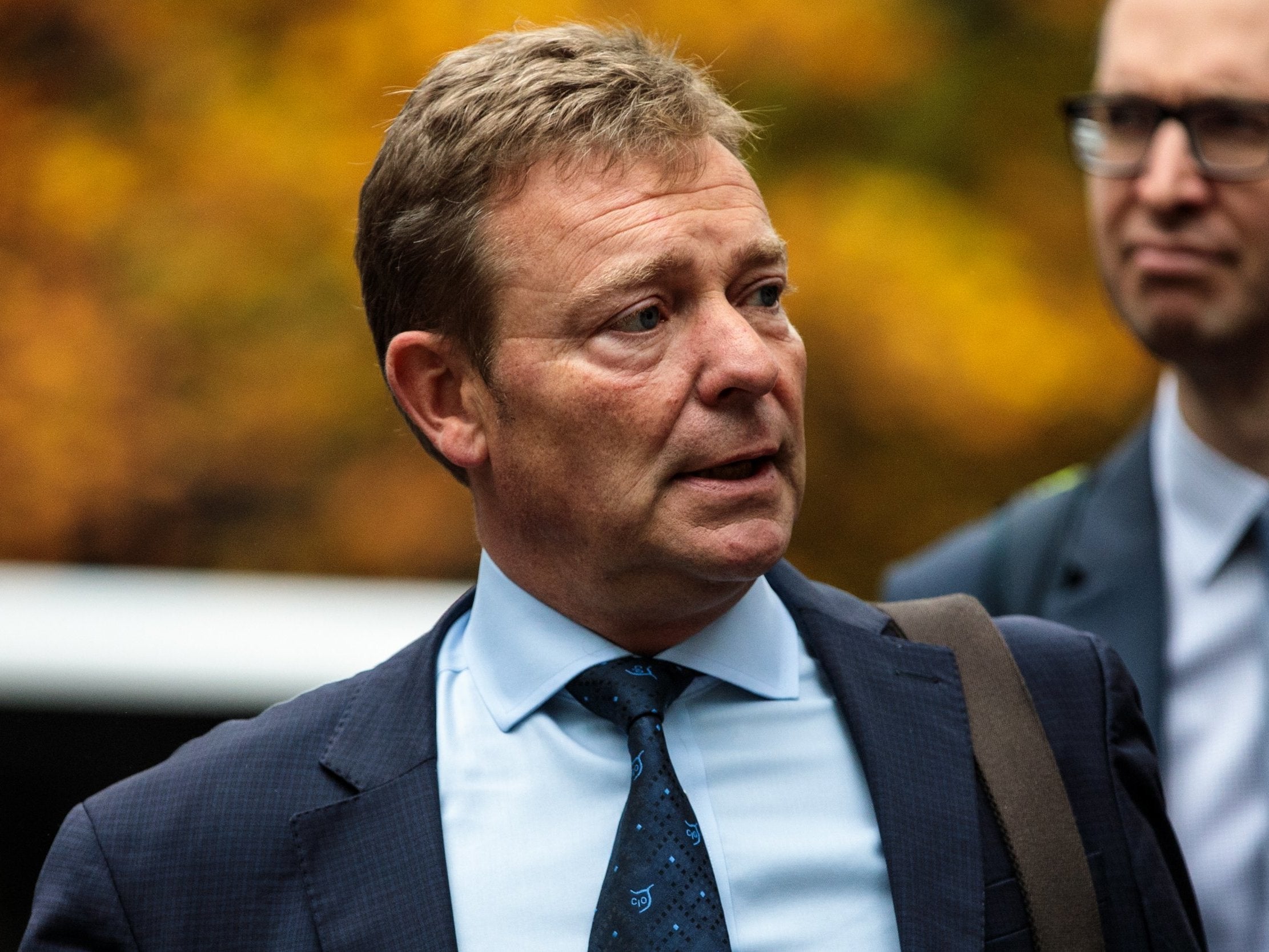Expenses of Tory MP who defeated Nigel Farage in election may have been forged, court told
Craig Mackinlay is on trial alongside his staff after they were accused of overspending

A Conservative MP's expenses form for his general election campaign may have been forged, a handwriting expert has told the politician's trial.
Craig Mackinlay, 52, is on trial alongside his staff after they were accused of overspending in his successful bid to beat the then Ukip leader Nigel Farage to the seat of South Thanet, Kent, in 2015.
Mr Mackinlay, his election agent, Nathan Gray, 29, and campaign manager, Marion Little, 63, have all denied deliberately filing false expenditure returns.
Mr Gray's signature appeared on the declaration form but Oliver Thorne, a forensic scientist specialising in handwriting, said this was an "imitation" and that there were also "significant differences" to show the writing on the form was forged too.
The culprit is not likely to be Ms Little or Mr Mackinlay, he added.
Mr Mackinlay, an accountant by profession, was elected to Parliament on 7 May 2015 with a majority of around 2,800. His declared spending came in under the strict £52,000 limit.
But jurors have been told his victory could have been made void if up to £66,000 of undeclared spending on staffing, accommodation and advertising was included on returns.
Mr Mackinlay denies two charges of making a false election expenses declaration under the Representation of the People Act 1983.
Ms Little denies three counts of intentionally encouraging or assisting an offence under the Serious Crime Act 2007.
Mr Gray denies one charge of making a false election expenses declaration and a further charge of using a false instrument under the Forgery and Counterfeiting Act 1981.
The defendants are all on bail while the trial, expected to last until December, continues.
Bookmark popover
Removed from bookmarks